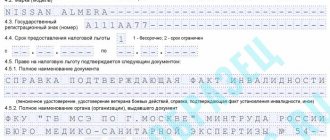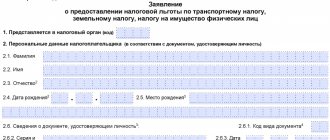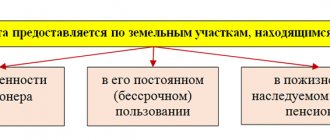The transport tax has been abolished in 2022 - is this true?
No. It is not true. The tax is still in effect and must be paid once a year depending on engine power and region of residence.
Initiative in April 2022
In April (to be more precise, back in March) 2022, the State Duma introduced a bill to the State Duma to abolish TN. This was based on several facts:
- supporting the abolition initiative in several public discussions at once (voting by the Federation of Car Owners and ROI),
- heavy burden due to transport tax, and at the same time low collection rate,
- support of the Ministry of Transport and the President of Russia in the abolition of this type of fee.
The project was submitted to the State Duma for consideration and has not yet been accepted, but it has not been rejected either.
News about cancellation from September 1, 2022
This is fake and not true. In mid-August 2022, information circulated online that such a tax would be abolished from September this year. We do not have information about the primary source of this data, but the truth is that no new laws on the abolition of transport tax from September 1, 2022 have been adopted or discussed.
Proving this fact is quite simple:
- check on the official website for the publication of legal acts for information on the abolition of taxes on documents that would come into force in September - you will not find any,
- look at the regularly and timely updated directory of legal information - Article 356 of the Tax Code of the Russian Federation, which establishes the very legality of the transport tax; as you can see, it is still relevant and has not been cancelled.
Presidential Decree on cancellation
However, on the Internet you will find the most contradictory information about this and a number of myths. According to the most common of them, Russian President Putin signed a decree abolishing the transport tax as such in Russia. And this applies to absolutely all car owners of any car.
That is, the tax is supposedly abolished as such altogether. And the change took place in the spring - in April 2022.
This turned out, unfortunately, to be untrue - in fact, this very distorted and transformed news came from two sources:
- Medvedev’s comment that the transport tax has been abolished for electric vehicles, but the regions do not take advantage of this,
- new law of 2022 on tax amnesty until 2015.
Even the Tax Service had to comment on such a flow of fake news about the abolition of the transport burden.
Abolition Bill
But after the bulk of motorists calmed down, already in the summer - in June 2022, publications again became agitated with information about changes - the complete abolition of the transport tax. We were now talking about a new bill that would completely exclude transport tax from the relevant code as an item for replenishing the budget. We are talking about Chapter 28 of the Tax Code.
But this is already true... But partly! Such a bill actually exists, and it was created on June 5, 2022. But on February 28, 2022, it was moved to the archive for the simple reason that on July 2 it was rejected already as part of the preliminary review.
View the full text of the bill to abolish the transport tax in the summer of 2022.
Cancellation of transport tax in 2022: what is proposed to replace TN
The most active discussion is about the abolition of the transport tax and its inclusion in excise taxes on gasoline (there was even information in the media that such a law was signed by the president, but in fact it turned out to be false). The point of this replacement is that the TN will be paid by car owners directly at the gas station - when filling the tank with fuel. Then some part of the excise tax will be transferred to the budget for appropriate needs. This will increase tax collection, and it will be paid by those who drive, and not by everyone who simply has a car. Everything is logical and fair. The main thing is that this does not inflate gasoline prices.
The second idea involved the abolition of the transport tax and the introduction of an environmental fee. The latter involves paying not for the car’s power, but for its environmental class. True, such a replacement does not solve the issue of tax fairness: again, you will have to pay not for driving, but for owning a car, and the amount of payment for older and cheaper cars will be higher than for more modern cars of the Euro-5 and Euro-5 class. Euro-6".
There is also a possibility that both proposals will be implemented, and then instead of one transport tax we will get two new ones.
Last news
- Latest news: The Ministry of Finance opposed the abolition of the transport tax, justifying it by the fact that the inclusion of this burden in excise taxes on fuel - which is exactly how the tax was initially proposed to be changed - will greatly affect the rise in prices for gasoline and diesel fuel. And this, in turn, will significantly increase the cost of all goods, because their transportation will now become much more expensive.
- Another reason named by the Ministry of Finance is that for 2022, funds from the tax on passenger cars in Russia go directly to the budgets of the regions where it is collected. And they are already distributing them to road funds. Thus, if the transport tax is abolished, the quality of roads in the regions may deteriorate.
- Another recent information is that in May 2018, another bill was introduced to the State Duma, which proposes to abolish the transport tax on electric passenger cars in Russia. It is currently under consideration and has not yet entered into legal force.
- In February 2022, the Tax Policy Department sent a letter to the Ministry of Finance with a proposal to consider the issue of canceling or reducing the transport tax rate in relation to large families. As of February 28, 2022, there have been no changes in this regard yet.
- From January 2022, changes in increasing coefficients for expensive cars will apply (but this is not a luxury tax, but a transport tax). The changes affected passenger cars costing from 3 million rubles. New coefficients with fresh amendments are given in the table below.
Transport tax rates for expensive cars after changes in January 2022
| Car cost | Age | Tax coefficient |
| 3-5 million rubles | Less than 3 years | 1,1 |
| 5-10 million rubles | Less than 5 years | 2 |
| 10-15 million rubles | Less than 10 years | 3 |
| More than 15 million rubles | Less than 20 years | 3 |
New luxury tax rules
The procedure for calculating increased transport tax for so-called “luxury” cars may change in the near future. The Russian Association of Dealers (ROAD) has already sent a letter with such a proposal to the Ministry of Industry and Trade. Thus, dealers asked the department to consider increasing the threshold values for the cost of cars subject to taxation with an increased transport tax coefficient. Basic range from 3-5 million rubles. dealers asked to raise it to 5-7 million rubles.
News November 6, 2022 Who can avoid paying transport tax (list)
News November 29, 2022 Luxury tax rules may change for motorists
The fact is that from January 1, 2014, the base rate for calculating luxury tax is considered to be an amount of 3 million rubles. Against the backdrop of an avalanche-like rise in prices in recent years, this bar has already lost its relevance: foreign cars in the mid-price segment have begun to be included in the list for luxury. For example, Kia Stinger GT, Kia Mohave, Toyota Highlander, Mazda CX-9, Nissan Murano, Nissan Pathfinder, Peugeot Traveler, Skoda Kodiaq and others.
For whom has the transport tax been canceled for today?
There is a small category of citizens and cars that are exempt from paying transport tax. These include:
- cars for disabled people, provided that their engine power is less than 100 hp. and they were received through social security, or specially equipped cars for the disabled,
- tractors and a small range of special equipment used for agricultural purposes,
- cars are stolen and wanted.
All other car owners will have to pay transport tax by December 1 of the current year.
Why cancel?
Ordinary citizens, as well as any organizations that own cars and other vehicles, are required to pay a special fee.
Moreover, the obligation to pay the budget was established regardless of the fact of using the car. For example, if a car was collecting dust in a garage for several years, the owner still paid money to the state. Putin, the newly elected President of the Russian Federation, raised the issue of abolishing the transport tax in 2022. According to the head of state, the duty has been an ineffective burden on citizens and organizations for several years. The new law abolishing the transport tax from 2022 will, of course, have a negative impact on the financial situation in the state. Since this tax collection annually brought about 150 billion rubles to the treasury. However, a sharp increase in fuel prices has led to a significant deterioration in the financial situation of citizens.
As a result, the government decided to ease the tax burden. In other words, the key goal of the abolition is to reduce the tax burden on certain categories of individuals and legal entities. That is why information appeared on the Internet that Putin signed a law abolishing the transport tax in Russia.
IMPORTANT!
Putin has not yet officially signed the regulatory act or decree on the abolition of the transport tax! That is, you still need to pay. We would like to remind you that the payment deadline is December 1, 2022.
All changes from 2022
The latest amendment adopted regarding the transport tax was published back in September last year. And some of the provisions come into force on January 1, 2022.
Among the most significant legislative updates are the following:
- benefits for Platon payers have been canceled - trucks weighing over 12 tons previously paid less tax; from 2020, the relaxation from the Tax Code of the Russian Federation was removed,
- but there is good news: if previously it was possible to receive other benefits (for example, for disabled people and other road users) only by submitting an application, now they are provided automatically when calculated by the tax authority upon receipt of information from the Pension Fund or social security authorities; but the procedure for providing relief at the request of car owners has also been preserved.
Transport tax, abolition 2022: State Duma news
Some representatives of the State Duma proposed abolishing the fee back in 2017. However, has the transport tax been abolished in 2022? Not yet. Most officials said that it is now impossible to completely abandon it. Refusal of the budget revenue item could lead to an increase in the deficit, which would negatively affect the country's economy as a whole. The situation may even worsen the financial crisis in the country.
According to the current Russian Minister of Finance, a complete abandonment of the transport tax will lead to an inevitable increase in excise taxes on gasoline and other types of fuel. The economy is not yet ready for such reforms. But the cancellation of transport tax debts in 2018 is quite possible. The President has repeatedly come up with such an initiative. However, there are no concrete decisions yet; bills are at the development stage. It is planned to completely write off debts that are impossible to collect.
Why does the transport tax attract so much criticism?
The idea of abolishing the transport tax is far from new, and similar initiatives have arisen among parliamentarians before. The reason for this is the large number of criticisms caused by Chapter No. 28 of the NKRF. The main complaint is that the tax is indiscriminate. Despite the fact that it should compensate for damage to the environment and road surfaces from the impact of cars, it is absolutely independent of the intensity of vehicle use.
Expert opinion
Maria Mirnaya
Insurance expert
OSAGO calculator
Previously, it was proposed to provide car owners with the opportunity to refuse to pay a transport tax if the car is not used for its intended purpose for some time of the year. To do this, it was supposed to write an appeal to the traffic police about the temporary suspension of car registration, for example, for the winter period. At this time, the license plate would have to be deposited with the State Traffic Inspectorate. This initiative did not receive support due to emerging bureaucratic difficulties.
Transport tax 2022: what will change
Transport tax must be paid, but the declaration has been canceled from the next tax period. That is, there is no need to report for 2022.
Important: based on the results of 2022, the deadline for filing a declaration is February 1, 2022.
It was also decided to cancel the non-declaration procedure for providing benefits for the payment of transport tax. Now the tax authority must be notified of the right to apply the benefit. To do this, an application and supporting documents are sent to the Federal Tax Service. They can be submitted to the tax office through the MFC.
If the tax office gives the go-ahead for the benefit, the taxpayer will receive a notification. The document will indicate the grounds for granting tax benefits, objects of taxation and grace periods.
The refusal to provide a benefit must contain the grounds for refusal, the objects of taxation and the period from which it was decided to cancel the tax benefit.
Tax authorities have 30 days to review the application and respond. This period may be extended by another 30 days, of which the taxpayer will be notified.
According to the new rules, organizations must pay transport tax no later than March 1 of the year following the expired tax period.
From 2022, you will need to pay transport tax on small motor boats with an engine power of up to 5 hp. With.
In 2022, taxpayers themselves calculate the amount of transport tax. To do this, the tax base is multiplied by the tax rate. The base is the car's horsepower. The more power, the higher the tax.
Basic tax rates are given in paragraph 1 of Art. 361 of the Tax Code of the Russian Federation, however, regional authorities have the right to reduce or increase them, but not more than 10 times.
Art. 2 of Law No. 325-FZ of September 29, 2019 contains amendments to the Tax Code, which introduce the listed changes.
For more information about tax calculation, as well as increasing coefficients, read the article “Transport tax: changes in 2022.”
You can calculate the tax on your car and find out about the availability of benefits in the Federal Tax Service “Reference information on rates and benefits for property taxes.”
Update October 1, 2020
In 2022, the transport tax was still not abolished, although there were attempts
The state planned to compensate for financial losses with the help of excise taxes on fuel. This is stated in bills No. 1010832-7 and No. 1016994-7.
The epidemiological situation in 2022 should have contributed to the adoption of a law on the abolition of the transport tax, due to the fact that citizens began to use cars less.
United Russia bill
Bill No. 1010832-7, introduced on August 20, 2022 by State Duma deputy from United Russia Andrei Baryshev, was not adopted in the State Duma. This is due to a violation of the requirements of Part 3 of Art. 104 of the Constitution of the Russian Federation and Art. 105 of the State Duma Regulations. The bill was rejected due to the lack of an opinion from the Government of the Russian Federation.
The LDPR bill
Later, on September 3, 2022, bill No. 1016994-7 was introduced by a group of deputies from the Liberal Democratic Party. The explanatory note calls the transport tax unfair, since it is “calculated depending on the engine power of the vehicle, and not on its service life and other characteristics.”
According to the authors of the bill, the abolition of the transport tax will lead to a reduction in income by more than 160 billion rubles per year. LDPR deputies proposed to compensate for this through interbudgetary transfers from the federal budget.
According to the conclusion of the Government of the Russian Federation, the method of compensation proposed by the authors of the bill does not comply with the principles of the budget system of the Russian Federation set out in Art. 28 BC RF.
The Russian government did not support this bill either.







